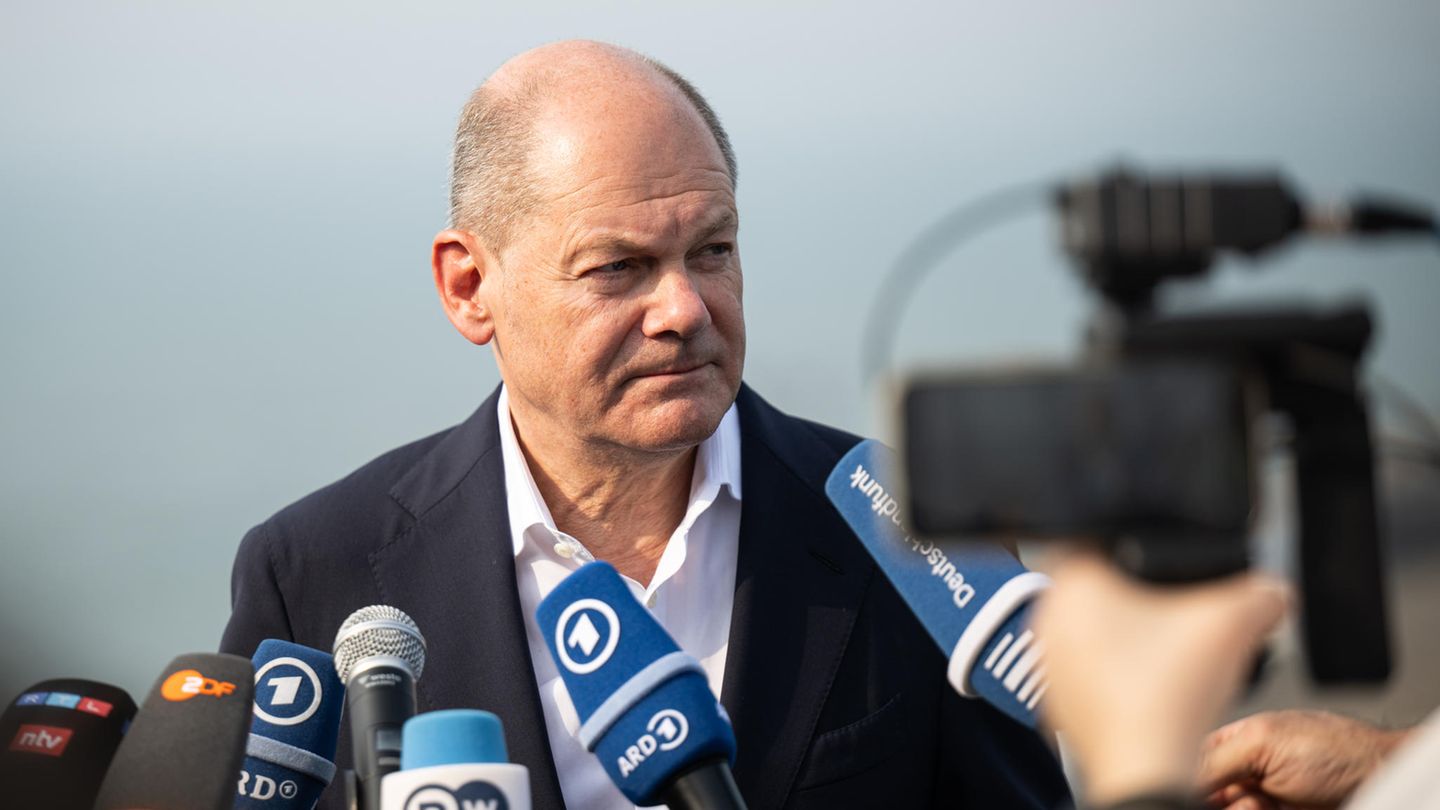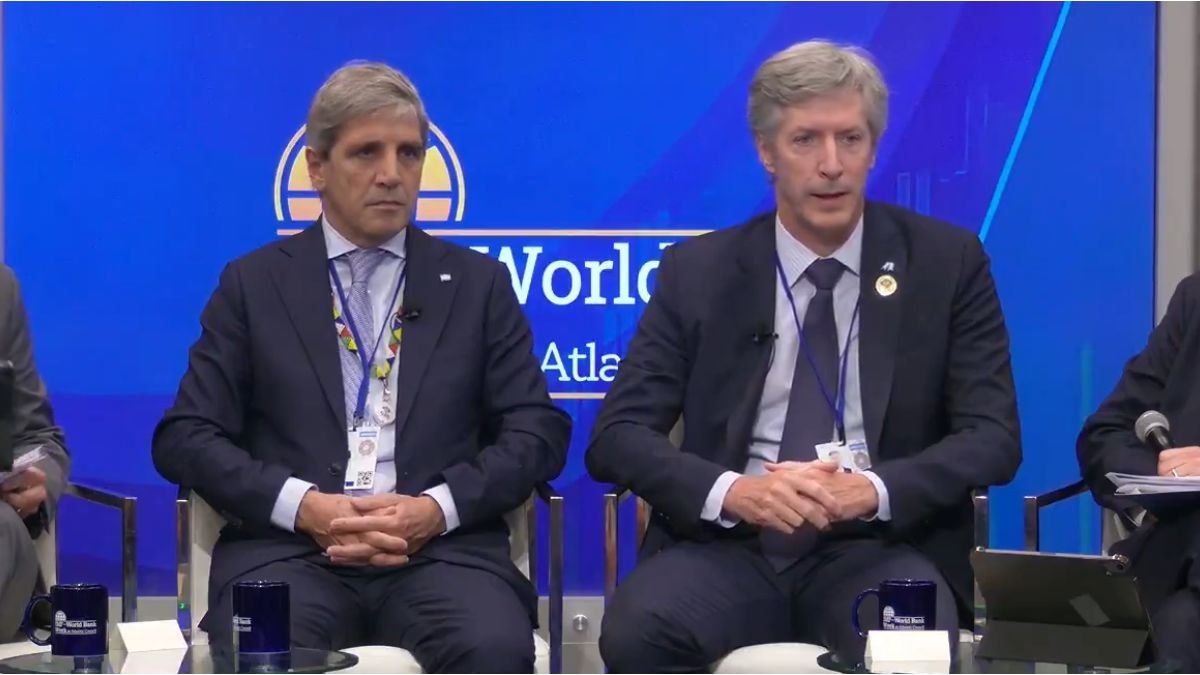After Israel’s retaliatory strike against Iran, it is unclear what will happen next. Numerous country leaders are concerned and are calling for de-escalation.
Israeli airstrikes on Iran in response to Iranian missile attacks on Israel have sparked internationally concerned calls for de-escalation. Almost four weeks after the Iranian missile attacks, the Israeli Air Force said it attacked several military targets in Iran on Saturday night. However, Iranian nuclear and oil facilities were apparently not affected.
According to Iranian sources, two Iranian soldiers were killed in the Israeli attacks. Otherwise there was only “limited damage,” Iran said. Iranian air defenses confirmed attacks around Tehran and in two provinces bordering Iraq, Khuzestan (southwest) and Ilam (west). The Israeli army said it attacked Iranian missile production facilities and air defense systems. Israel has chosen the targets “from a number of possible targets” and can also choose others “if necessary,” said army spokesman Daniel Hagari.
Chancellor Scholz warns Iran and Israel against further attacks
The Israeli airstrikes sparked concern around the world. Chancellor Olaf Scholz (SPD) warned the leadership in Tehran against any further escalation. “My message to Iran is clear: massive escalatory reactions cannot continue forever. This must end now,” Scholz explained on Saturday in the online service X.
Scholz emphasized that Israel had tried to avoid “personal injury.” “This offers the opportunity to avoid further escalation.” Also from that Foreign Officewhere the crisis team was to meet in Berlin on Saturday afternoon, it was said that this “Israeli response to the Iranian missile attacks opens a window for diplomatic progress in the Middle East and Lebanon.”
The USA emphasized Israel’s “right to self-defense” in view of the Iranian attacks on October 1st. At the same time, they called on Iran to “cease its attacks on Israel so that this cycle of violence can end without further escalation,” said Sean Savett, spokesman for the National Security Council in Washington. The US government had previously warned Israel of possible attacks on nuclear and oil facilities in Iran. Calls for de-escalation also came from Great Britain, France and Russia.
Arab countries worried
Countries in the Arab world, including Saudi Arabia, Iraq and Jordan, as well as the radical Islamic Palestinian organization Hamas condemned the Israeli actions. The United Arab Emirates expressed “deep concern” about the ongoing escalations and their impact on regional security and stability. The Omani Foreign Ministry spoke of a “blatant violation” of Iranian sovereignty. The ongoing Israeli attacks threatened to further destabilize the region. Similar comments were made Qatar. The leadership of the Gulf state called on all parties to exercise restraint.
Russiaeven at war with Ukraine, spoke of a “real threat to the stability and security of the region.” Moscow is calling on all sides to “stop the violence and prevent the events from developing into a catastrophic scenario,” said Foreign Ministry spokeswoman Maria Zakharova. The country maintains close relations with Iran and pursues its own security and economic interests in the Middle East.
The European Union said it recognized Israel’s right to self-defense but called on all parties to exercise “utmost restraint” to avoid an “uncontrollable escalation” in the Middle East. This was said in a statement by the 27 EU member states on Saturday. Such an escalation is “in nobody’s interest.” The “dangerous cycle of attacks and retaliation” risks further escalating the regional conflict, the statement added. The EU remains “determined” to reduce the growing tensions in the region and contribute to de-escalation.
Also UN Secretary General António Guterres expressed “deep concern” about the situation. Through his spokesman Stéphane Dujarric, he said he was “urgently repeating his appeal to all parties to stop all military actions, including in the Gaza Strip and Lebanon.” Guterres called for “maximum efforts to prevent a full-scale regional war and return to the path of diplomacy.”
The escalation spiral continues
Iran fired around 200 rockets at Israel on October 1, most of which were intercepted. He was reacting to Israel’s military offensive against the pro-Iranian Hezbollah militia in southern Lebanon and the killing of its leader Hassan Nasrallah. Israel then threatened Iran with a “deadly, precise and surprising” response.

Israel’s ‘attack will be deadly, precise and surprising’
01:50 minutes
On April 13, Iran attacked Israel with missiles from its territory for the first time. In this case too, most of the rockets were intercepted by Israel with the support of allied states. A few days later, there were explosions in the Iranian region of Isfahan, which were widely seen as an Israeli retaliation.
Since the war in the Gaza Strip began over a year ago, the conflict between Israel and Iran has escalated. Iran supports the Shiite Hezbollah in southern Lebanon, which in turn is allied with the radical Islamic Hamas in the Gaza Strip.
The war in the Gaza Strip was triggered by Hamas’ major attack on Israel on October 7, 2023. Since then, Israel has taken massive military action against Hamas in the Gaza Strip and, for a few weeks now, against Hezbollah in Lebanon.
Source: Stern
I have been working in the news industry for over 6 years, first as a reporter and now as an editor. I have covered politics extensively, and my work has appeared in major newspapers and online news outlets around the world. In addition to my writing, I also contribute regularly to 24 Hours World.




